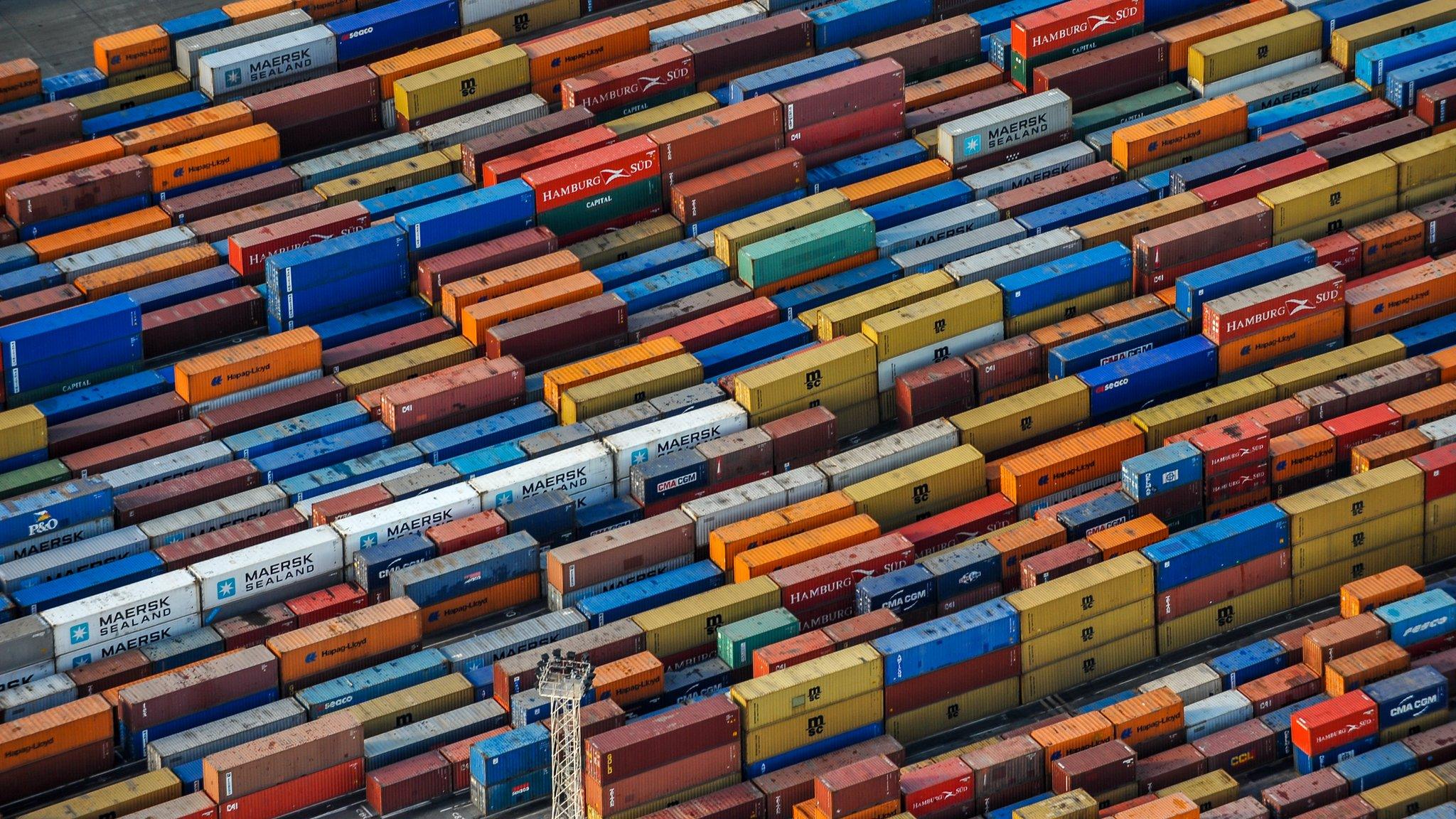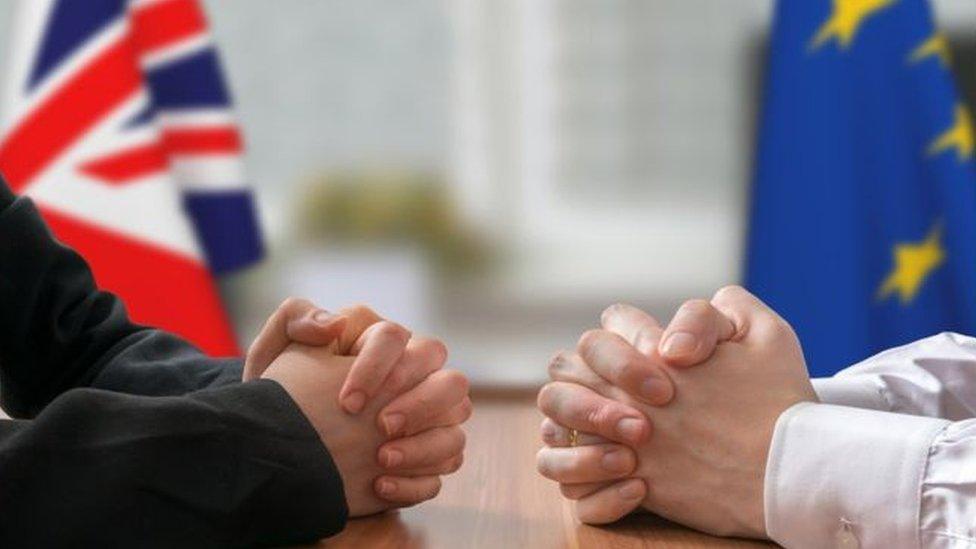Brexit: Disappointing progress in trade talks, says Michel Barnier
- Published
- comments
Michel Barnier says Britain has “failed to engage substantially” in trade talks with the EU
The progress made in post-Brexit trade talks between the UK and EU has been disappointing, Michel Barnier has said.
The EU's chief negotiator said "genuine progress" and a decision on whether to extend the transition period were both needed by June.
The UK said "limited progress" had been made and talks needed to "move forward in a constructive fashion".
The two sides will hold two further rounds of talks before the end of the transition period in December.
Mr Barnier said a joint decision would be taken on 30 June about whether to extend the transition period.
But the UK government has already said it will refuse to extend it beyond December, even if the EU requested a delay.
Following the talks - which took place using video-conferencing technology because of the coronavirus pandemic - Mr Barnier said: "The UK has affirmed once again this week its wish to make tangible progress between now and June and we're on the same wavelength on this and we respect the same timetable.
'Sovereign equals'
"That means that we need genuine progress by June if, at the end of this year, we want to strike an agreement which is commensurate to the level of our economic interdependence and geographical proximity."
But he said there were four areas where progress was "disappointing", including the level playing field (what kind of access the UK could have to the European single market after Brexit), justice and fisheries.
And he warned that the "clock was ticking".


You can pretty much discard the warm, fluffy comments from EU and UK negotiators that good progress is at least being made on core free trade agreement issues.
Why? That was always going to be the easy part.
Fishing, competition rules, the form of an eventual deal and what kind of mechanism would be used for disputes between the two sides. Those have been the screaming areas of disagreement between EU and UK negotiators from the start.
And if they can't be resolved, the EU insists there will be no trade deal at all.
It's quite clear from briefings with EU and UK officials that the two further rounds of talks planned for May and June won't be enough.
Those are technical negotiations. You need political engagement to find compromise. But the coronavirus crisis means Downing Street and EU leaders already have their plate pretty full.
And if the government doesn't budge from its refusal to extend the transition period to continue negotiations past the end of this year, then as the EU's chief negotiator is so fond of saying: "The clock is ticking". Really.

Mr Barnier said the UK negotiating team keeps repeating that they are negotiating as "sovereign equals", but the "reality" was that an agreement was being sought between a massive bloc and a smaller nation.
On fisheries, Mr Barnier said the EU would not agree to a deal without a "balanced, sustainable and long-term agreement", describing it as an "inseparable part of the trade agreement, along with the level-playing field".
But he said "no progress" had been made on fisheries, as the UK has "not put forward a legal text".
"The UK did not wish to commit seriously on a number of fundamental points," he said.
Mr Barnier said the two sides "need to find solutions on the most difficult topics".
"The UK cannot refuse to extend transition and at the same time slow down discussions on important areas," he added.
Mr Barnier reiterated that the UK would have to pay a "lump-sum" contribution to the EU budget if the transition period is extended beyond 31 December.
And he said any deal agreed by December would have to be "smart" to "cushion the blow" of Brexit and coronavirus.
'Limited progress'
A UK spokesperson said: "We do not recognise the suggestion that we have not engaged seriously with the EU in any area.
"We have just had a negotiating round lasting most of a week, including two full days talking about fisheries and three full days discussing so-called level-playing-field issues."
The spokesperson said they were "ready to keep talking" but some of the EU's proposals were "unprecedented" and did not account for the UK as "an independent state".
In a statement, the UK government said it had been a "full and constructive negotiating round".
"However, limited progress was made in bridging the gaps between us and the EU," it said.
"Our assessment is that there was some promising convergence in the core areas of a free trade agreement, for example on goods and services trade, and related issues such as energy, transport, and civil nuclear cooperation."
But it said that the EU's offer on goods trade "falls well short of recent precedent in FTAs (free trade agreements) it has agreed with other sovereign countries".
"This considerably reduces the practical value of the zero tariff zero quota aspiration we both share," the statement said.
The UK government also highlighted "significant differences of principle" in areas including the level playing field and fisheries.
It said talks needed to "move forward in a constructive fashion" and the UK "remains committed to a deal with a free trade agreement at its core".
The next round of talks are due to be held during the weeks beginning 11 May and 1 June.
- Published30 June 2021

- Published16 April 2020
